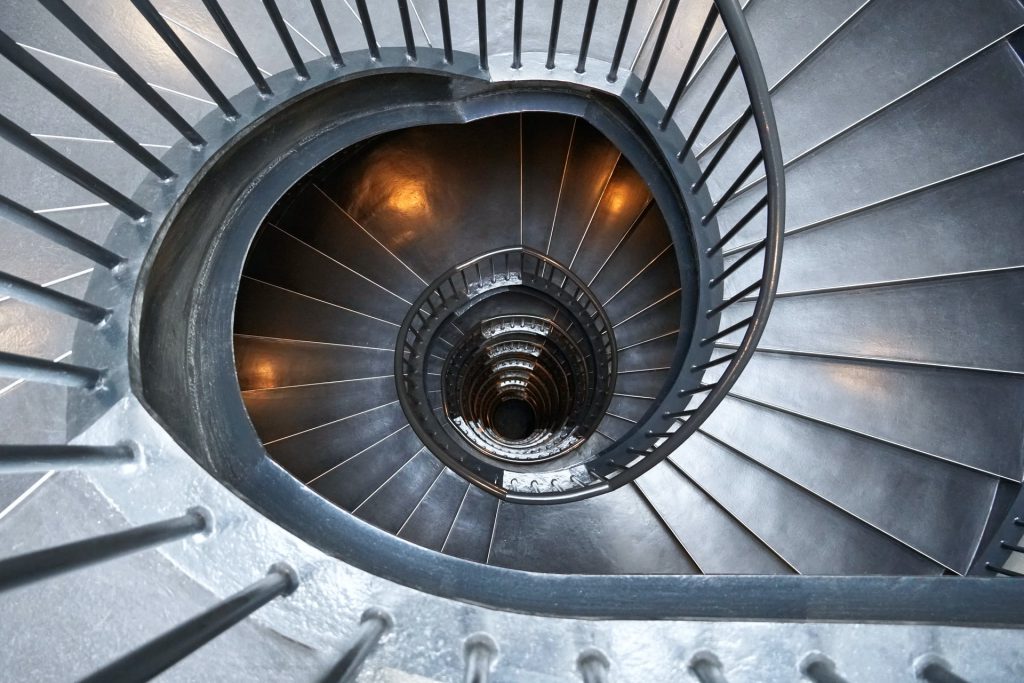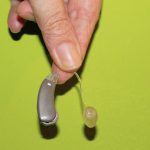
Ménière’s (Meniere’s) disease is a disorder of the inner ear. It affects approximately one in every 1000 people and can lead to dizziness (such as vertigo) and hearing loss. It’s considered a chronic condition, nevertheless, there are a few treatment options that can relieve your symptoms and allow you to live a good quality of life.
Usually, people find that Meniere’s disease affects only one ear. It can occur at any age although some reports conflict about whether it is more common in young adulthood and middle age or more likely to affect adults between 40 and 60 years of age.
Contents
Why Do People Get Meniere’s Disease?

The National Institute on Deafness and other Communication Disorders (NIDCD) estimates that around 615,000 individuals in the U.S. are diagnosed with Meniere’s disease, with over 45,500 newly-diagnosed cases each year.
There are no definite answers as to why people develop Meniere’s disease and research into the causes is still ongoing. Possibilities include it being a result of constrictions in blood vessels like those that cause migraine headaches, a result of viral infections, allergies, genetics (as if often runs in families), and autoimmune reactions.
Meniere’s Disease Causes and Symptoms
Causes
As mentioned above, the cause(s) of Meniere’s disease is still unknown. The symptoms, however, seem to be the result of an abnormal amount of fluid (endolymph) in the inner ear. Exactly what causes this to happen is unknown.
Some factors that affect the fluid which can contribute to this occurrence include:
- Improper fluid drainage — this might be due to blockage or anatomic abnormality
- Viral infections
- Head injury or trauma
- Migraines
- Abnormal immune responses
- Genetic predispositions that lead to abnormalities in the volume or regulation of endolymph fluid
It’s thought that a combination of causes is likely the culprit behind most diagnosis’s of Meniere’s disease. As no single cause has been identified, this would seem to suggest that it simply isn’t straightforward, and many factors are usually at play.
Symptoms

You might have Meniere’s disease if you experience:
- Recurring bouts of vertigo (a dizzy, spinning sensation). This might start and stop spontaneously, and occur without warning. This might also occur after a short period of tinnitus or muffled hearing and you might also feel nauseous. Episodes can last 20 minutes to a few hours, but not for more than 24 hours. You could have single attacks of dizziness separated by long periods of time or attacks closer together over a number of days.
- Drop attacks — episodes of vertigo so extreme that you lose your balance and fall.
- Tinnitus — ringing, buzzing, roaring, or hissing in the ear that is either intermittent or continuous.
- Hearing loss, which might come and go in the early stages of having the condition. Over time many people develop permanent hearing loss.
- A feeling of fullness or pressure in the affected ear (aural fullness).
These symptoms will fluctuate with your episodes, which might become less frequent as time goes on.
Meniere’s disease is normally diagnosed by an otolaryngologist, also known as an ENT. There is no definitive test that is used for a diagnosis. It all depends on your medical history and whether you have experienced:
- Two or more episodes of vertigo (lasting at least 20 minutes each)
- Temporary hearing loss (a hearing test might be conducted)
- Tinnitus
- A feeling of fullness in your ear
A doctor might send for magnetic resonance imaging (MRI) or computed tomography (CT) scans of your brain to be sure that there isn’t an underlying medical condition causing your symptoms that requires urgent treatment.
How to Manage a Meniere’s Disease Attack
Home remedies that can help you manage your attacks include sitting or lying down when you feel dizzy, resting during and after attacks, and doing what you can to keep your balance to prevent falls. Keep your eyes closed or fixated on an immobile object and try not to move your head too quickly.
After an attack, moving around might trigger your eyesight and other senses to compensate for the issues with your ear.
Limiting salt, caffeine, alcohol, and tobacco might also reduce your attacks.
You can take some medications for the dizziness and nausea as discussed in ‘Treatments’ below.
Does Meniere’s Disease Cause Hearing Loss?
Meniere’s disease can lead to hearing loss and usually causes people to have trouble hearing low frequencies or combined high and low frequencies. In fact, a hearing test (audiometry) will form part of your diagnostic assessment.
Sadly, the hearing loss from Meniere’s disease has no cure and is permanent; this will have a long-term impact on your life and might cause you stress and anxiety. It can often be helped with hearing aids, however, so identifying the type of hearing loss you have and then seeing an audiologist to get fitted for hearing aids is one suggestion.
Treatment for Meniere’s Disease

Meniere’s disease can’t currently be cured. If you’re a sufferer of the condition this might be distressing for you to hear.
However, several treatments can work on reducing the severity and frequency of your vertigo episodes.
Your physician might decide to prescribe you medications that will help to reduce the intensity of yourvertigo attacks. Meclizine or diazepam (Valium) is often used to treat motion sickness and might help your sensations of spinning and any nausea or vomiting. Promethazine is an anti-nausea medication that might help with this too.
Cognitive therapy (a type of talk therapy helping people to focus on how they interpret and react to life experiences) might be effective in helping you mentally deal with the unpredictable nature of your vertigo attacks.
Pressure pulse treatment through a device that fits into the outer ear might ease the condition and the treatment has recently been approved by the FDA. It works by delivering intermittent air pressure pulses to the middle ear, which act on endolymph fluid to stop your dizziness.
If these treatments don’t help and you’re really struggling with your symptoms, your doctor might suggest some other treatments such as an endolymphatic sac procedure, a labyrinthectomy, and (rarely) a vestibular nerve section.
If you experience symptoms of Meniere’s disease, see your doctor. As the signs of Meniere’s can also be symptomatic of other conditions, it’s important to get an accurate diagnosis. If you have another illness and it’s left untreated, this could be bad news. Get an accurate diagnosis from a medical professional.
The information in this guide has been written using the following reliable sources:
https://www.mayoclinic.org, https://www.hearingloss.org, https://www.hearingdirect.com







